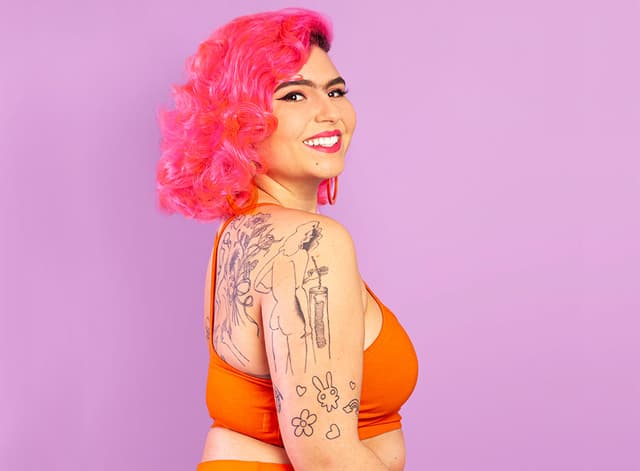Podcast

Ruby Rare is a Happy Naked Person
March 14, 2022
Ruby Rare is a sex educator and author with an impressive creative output, including a book, a podcast, and a body positive figure drawing class she runs with her best friend. The key is being unafraid to bare it all.